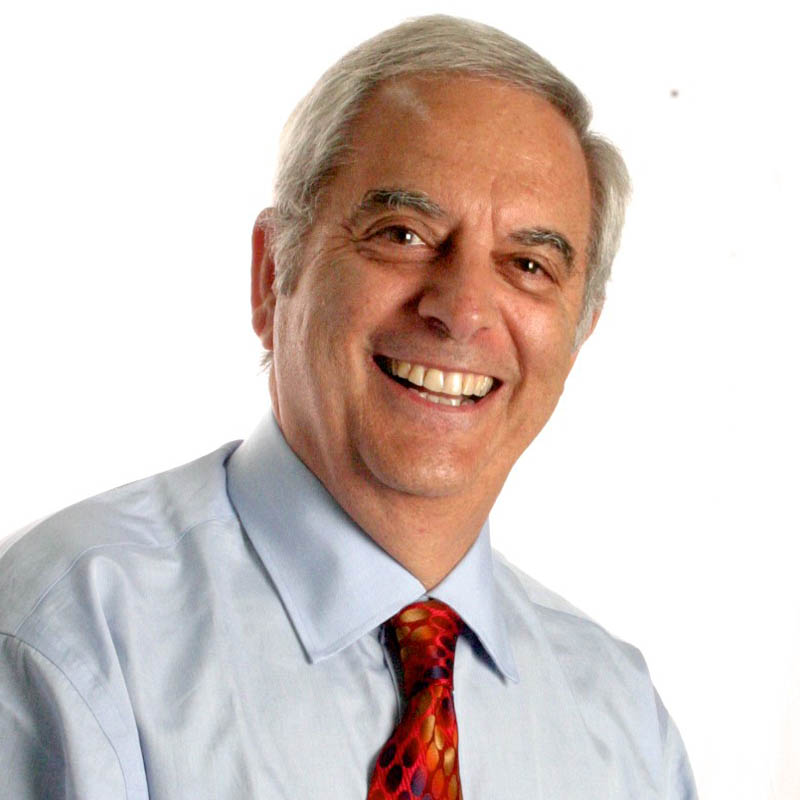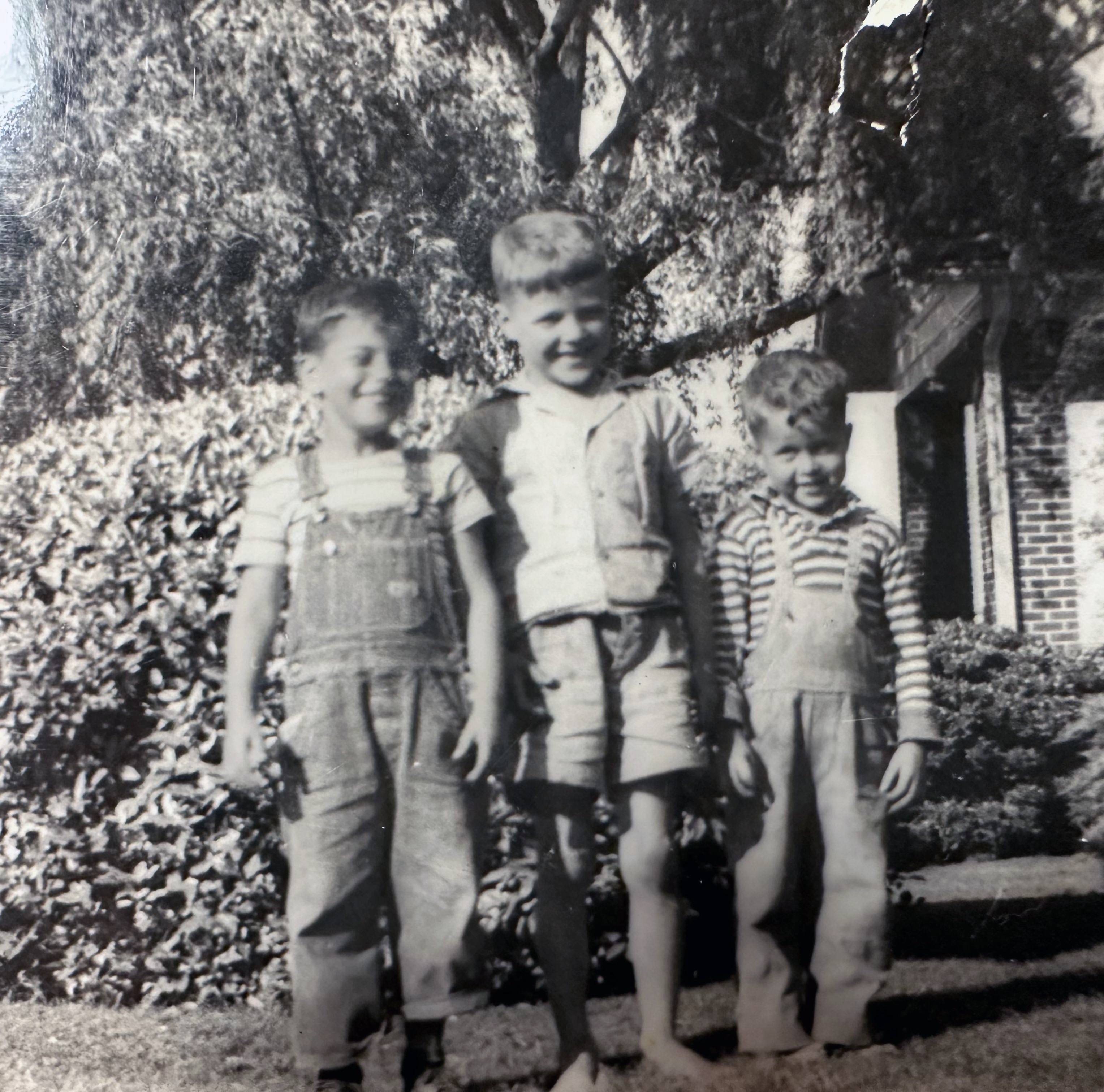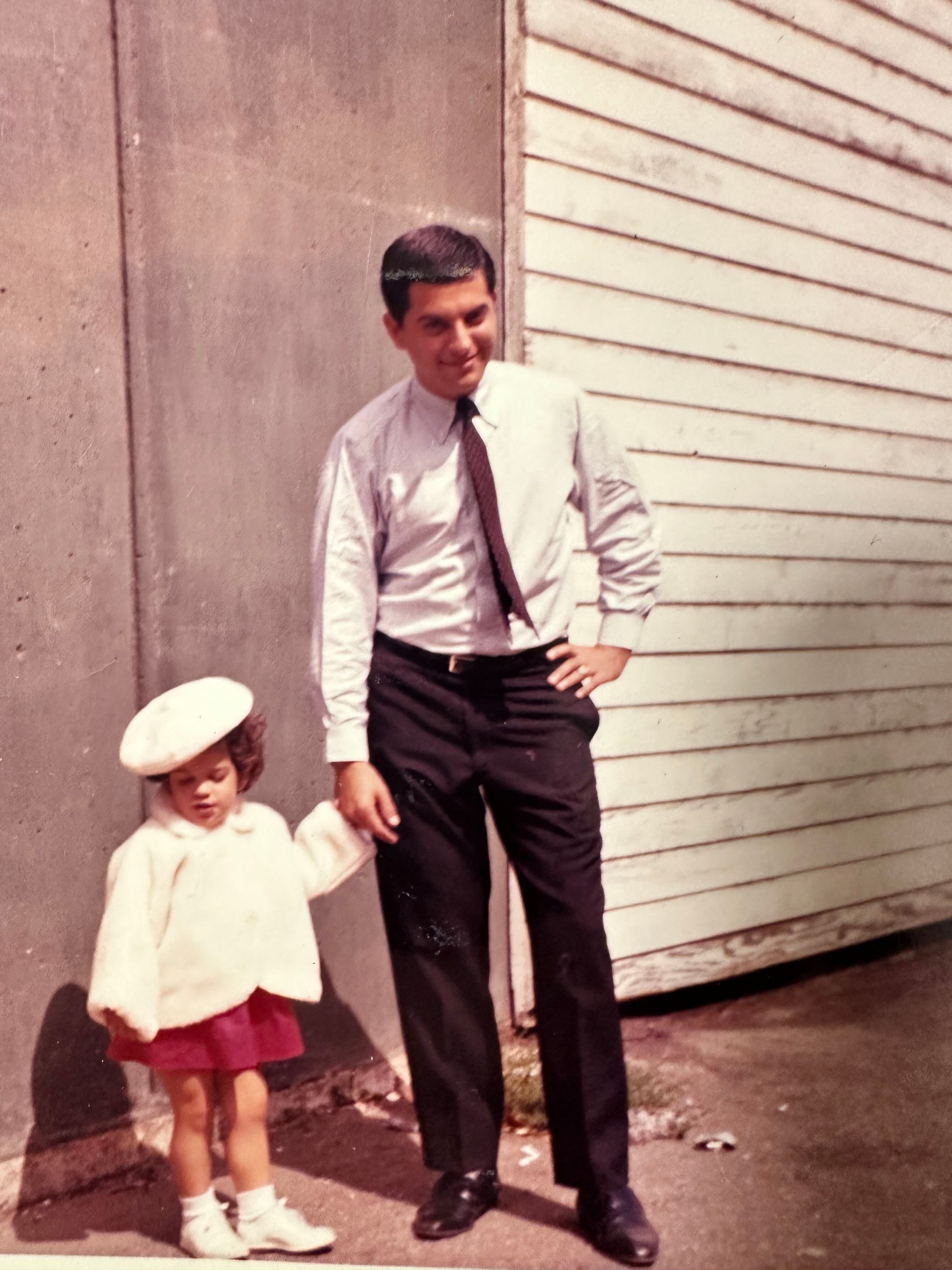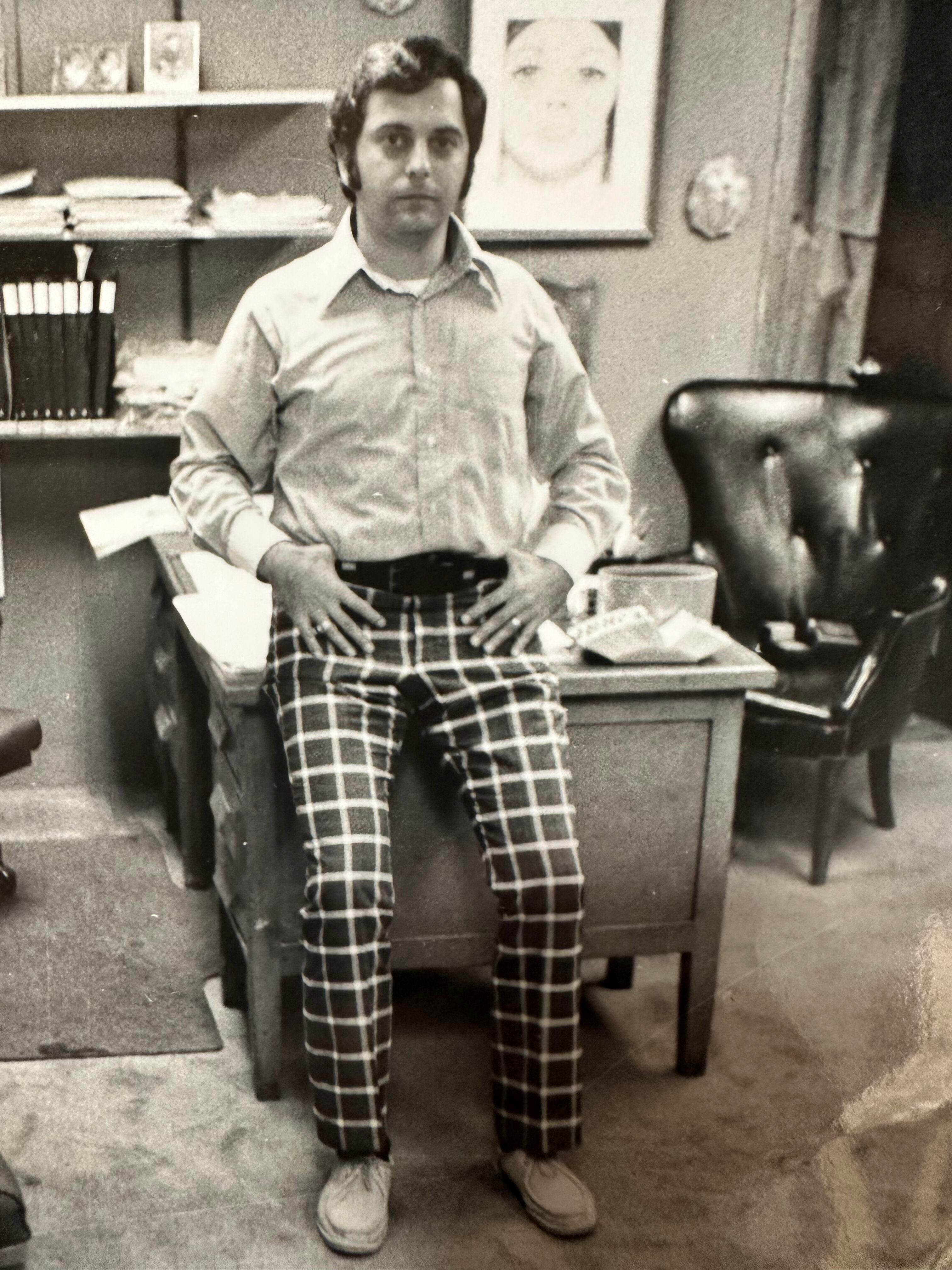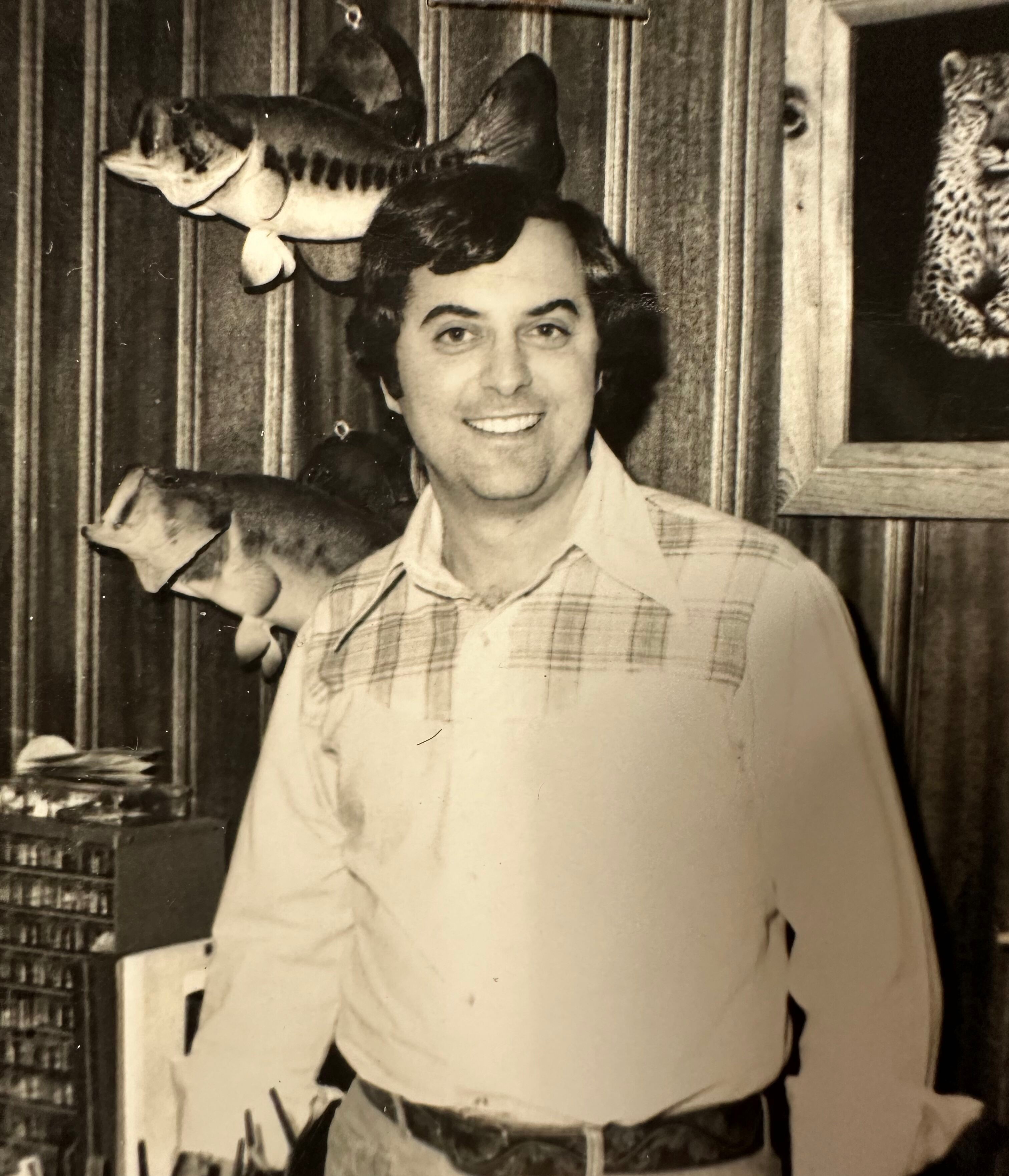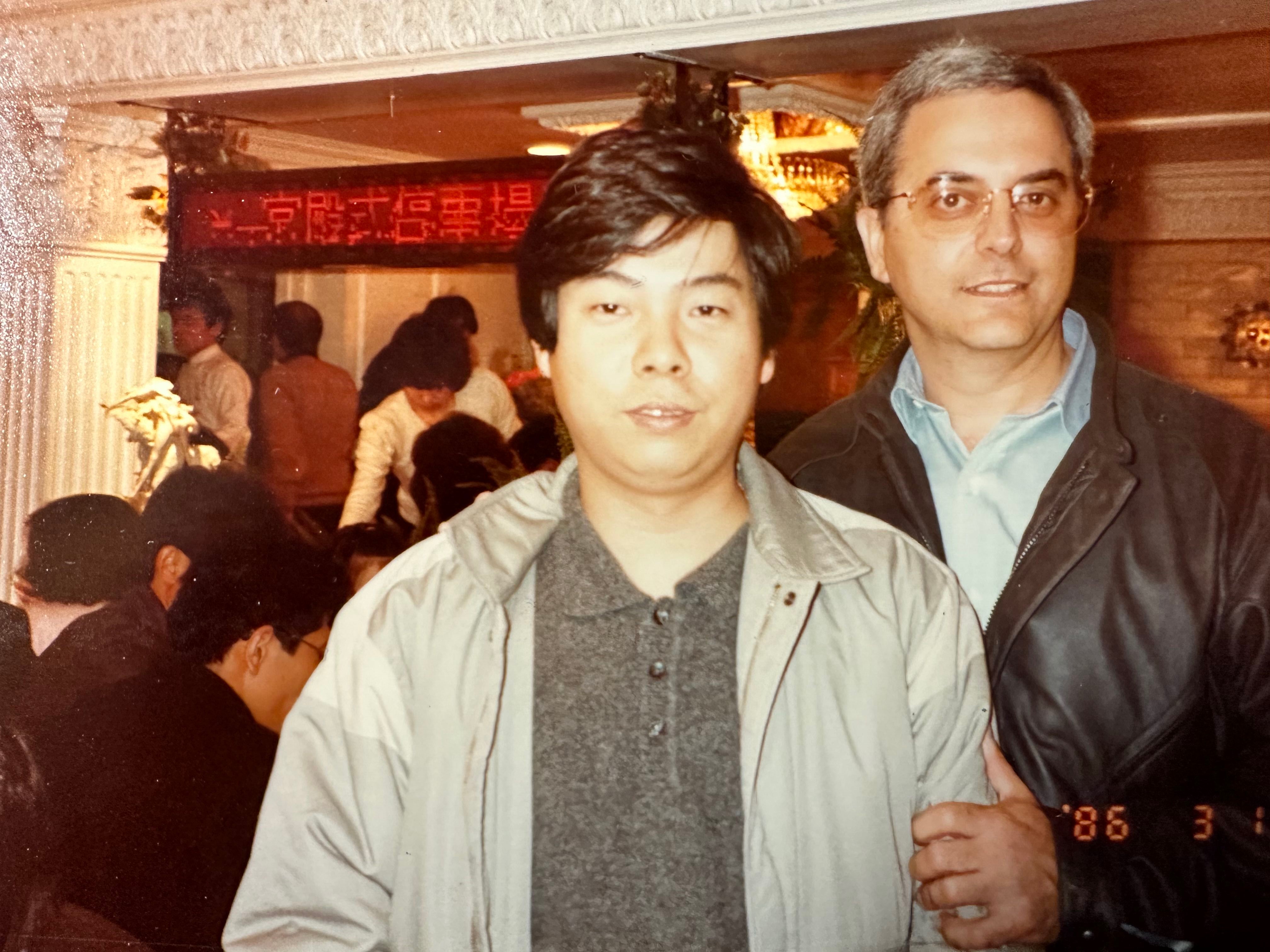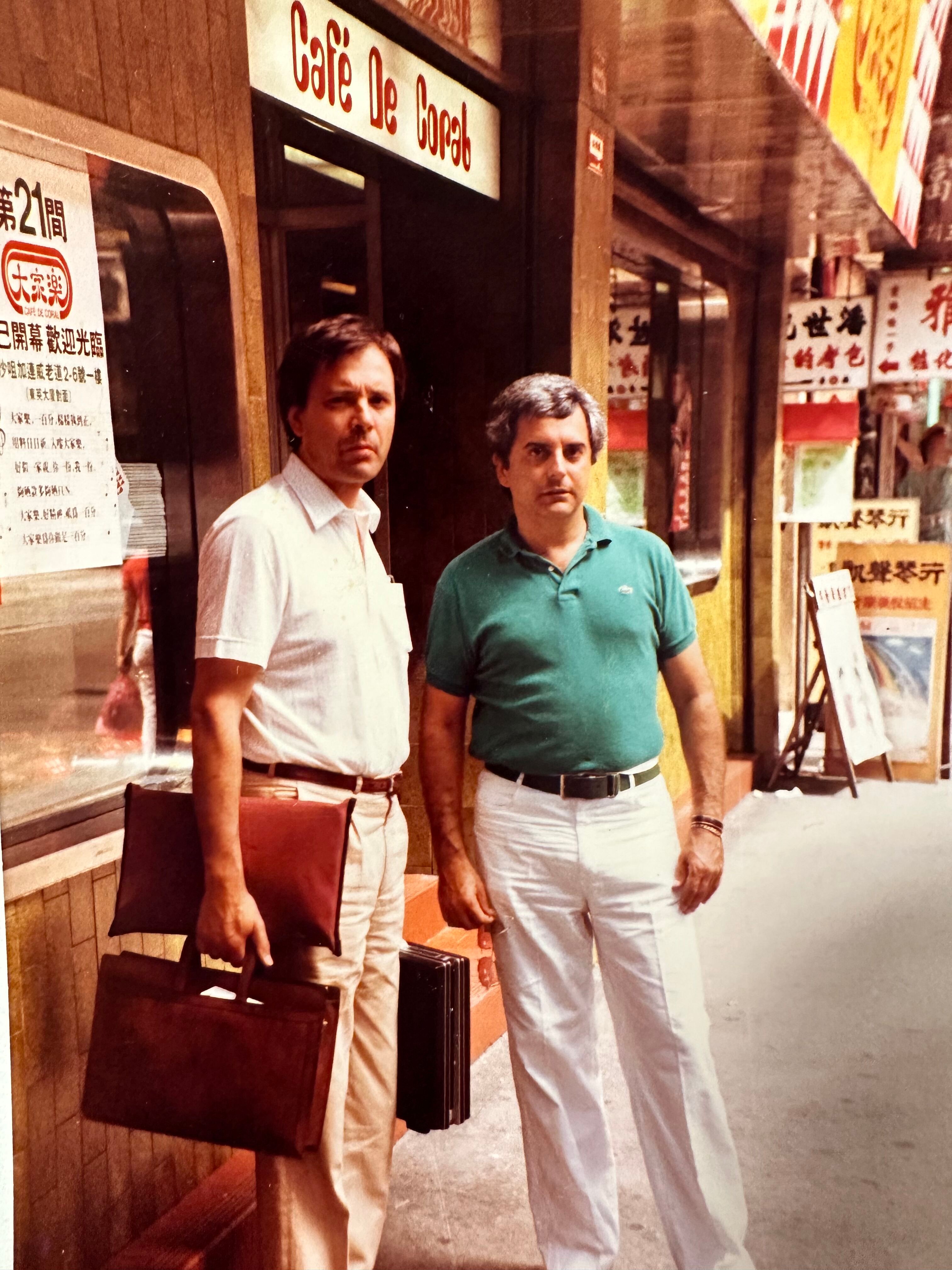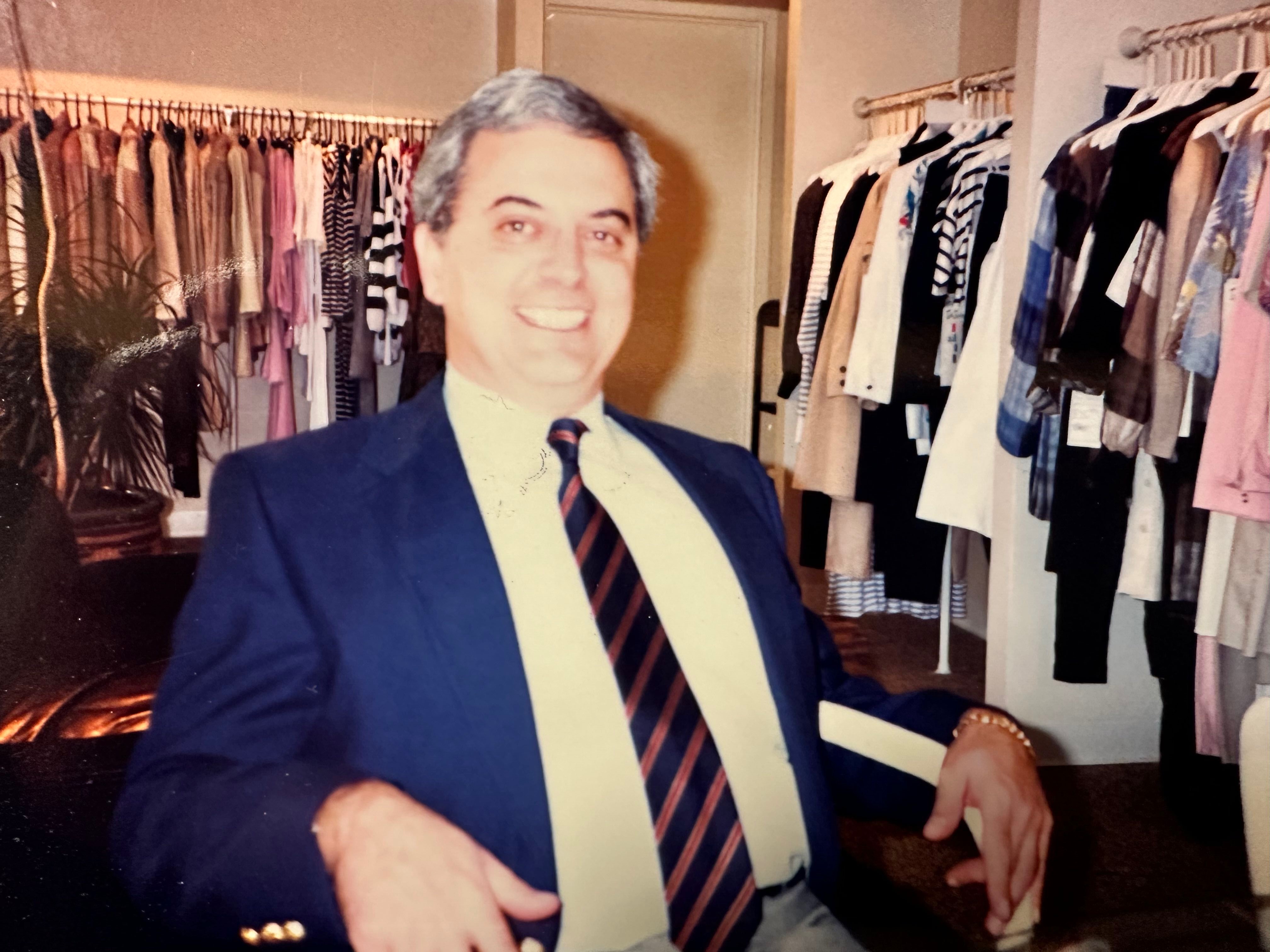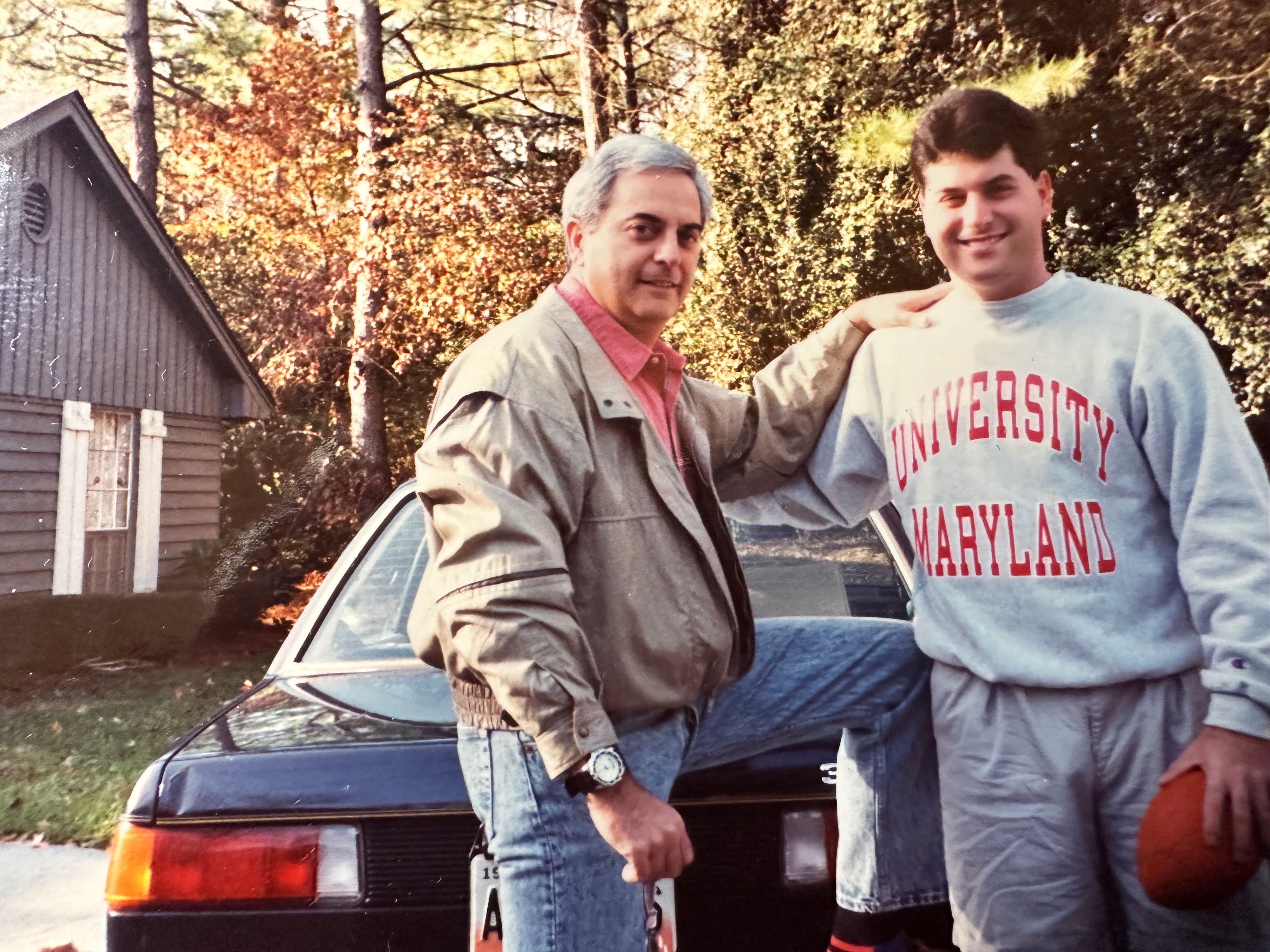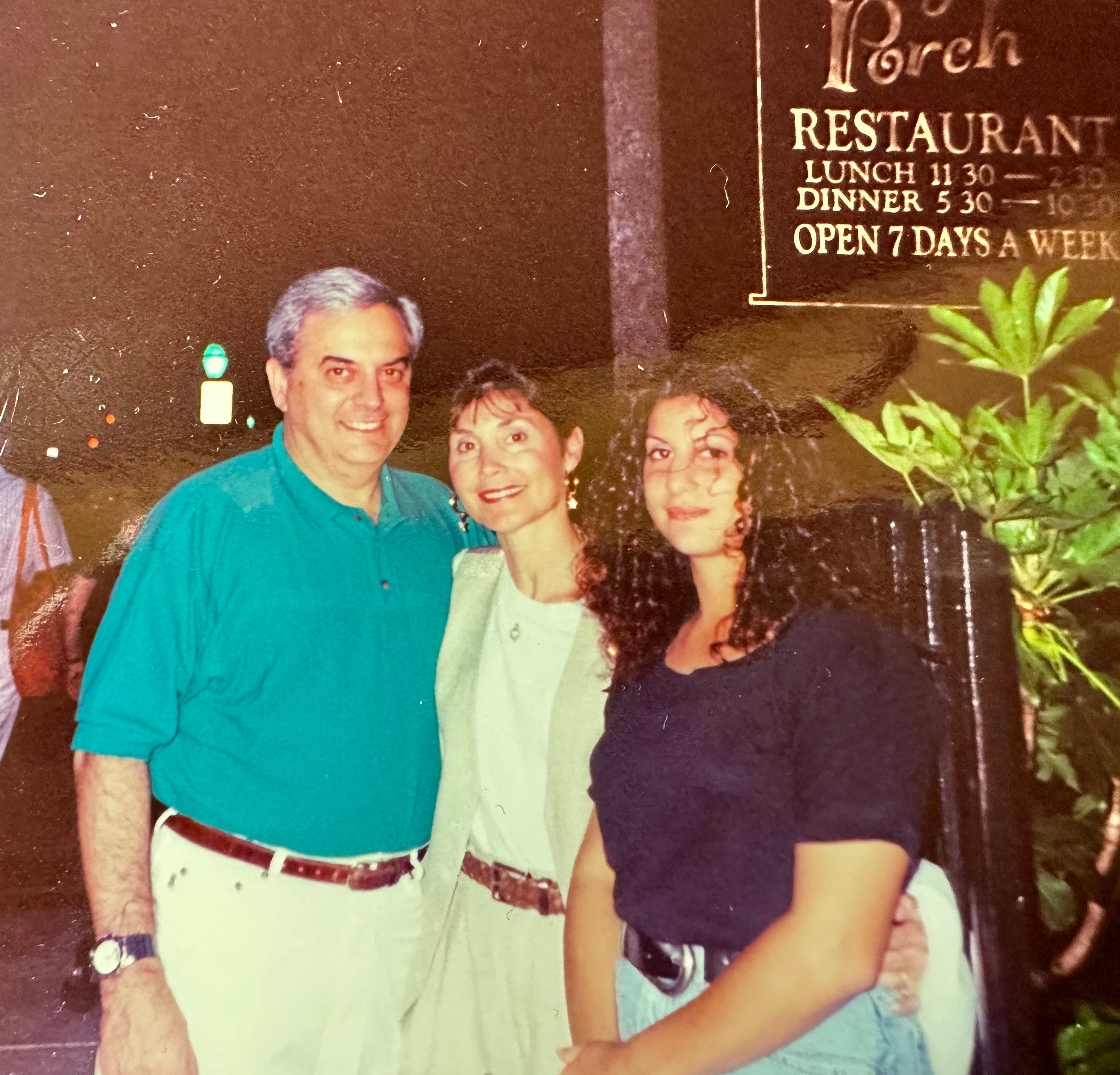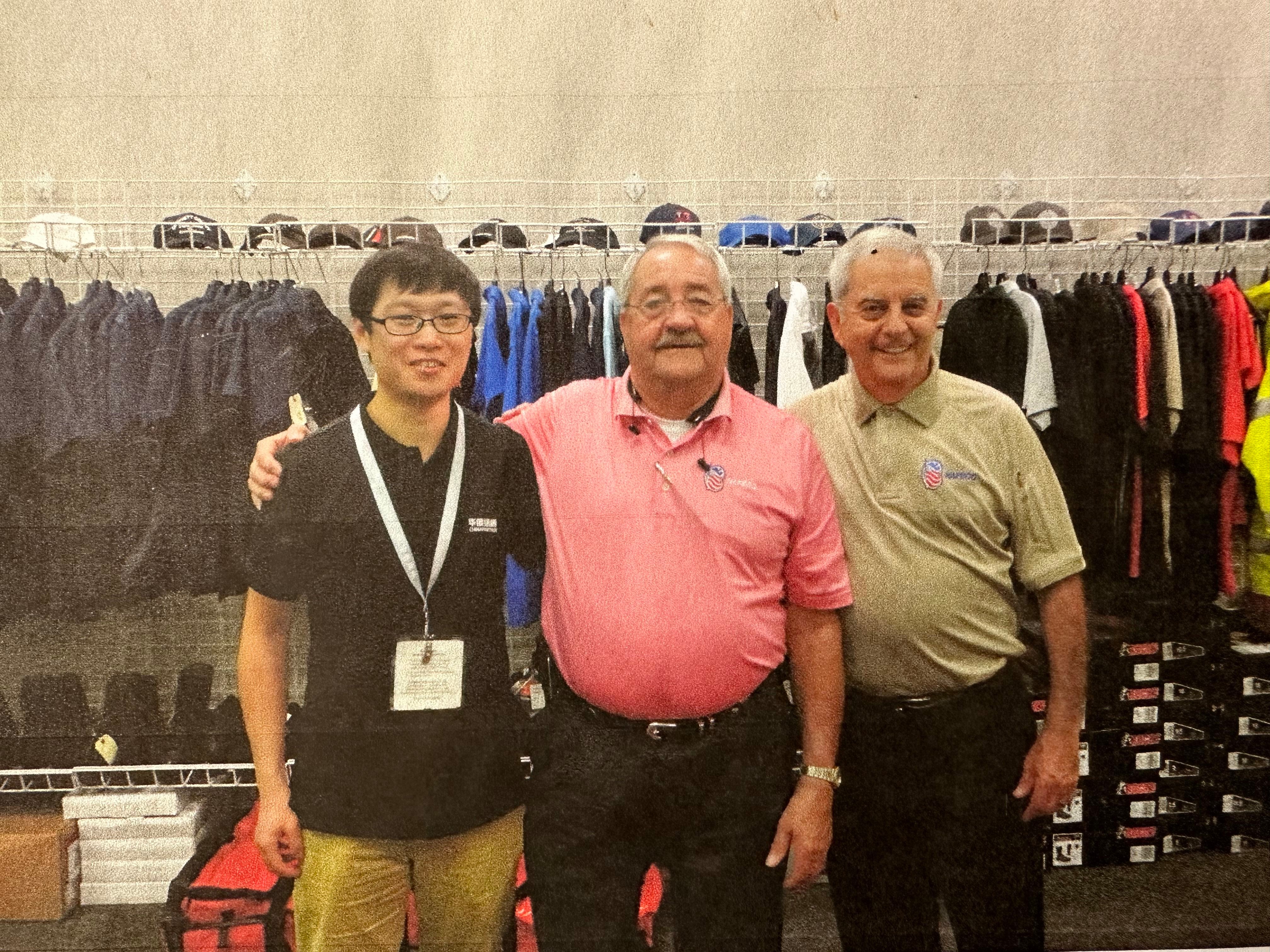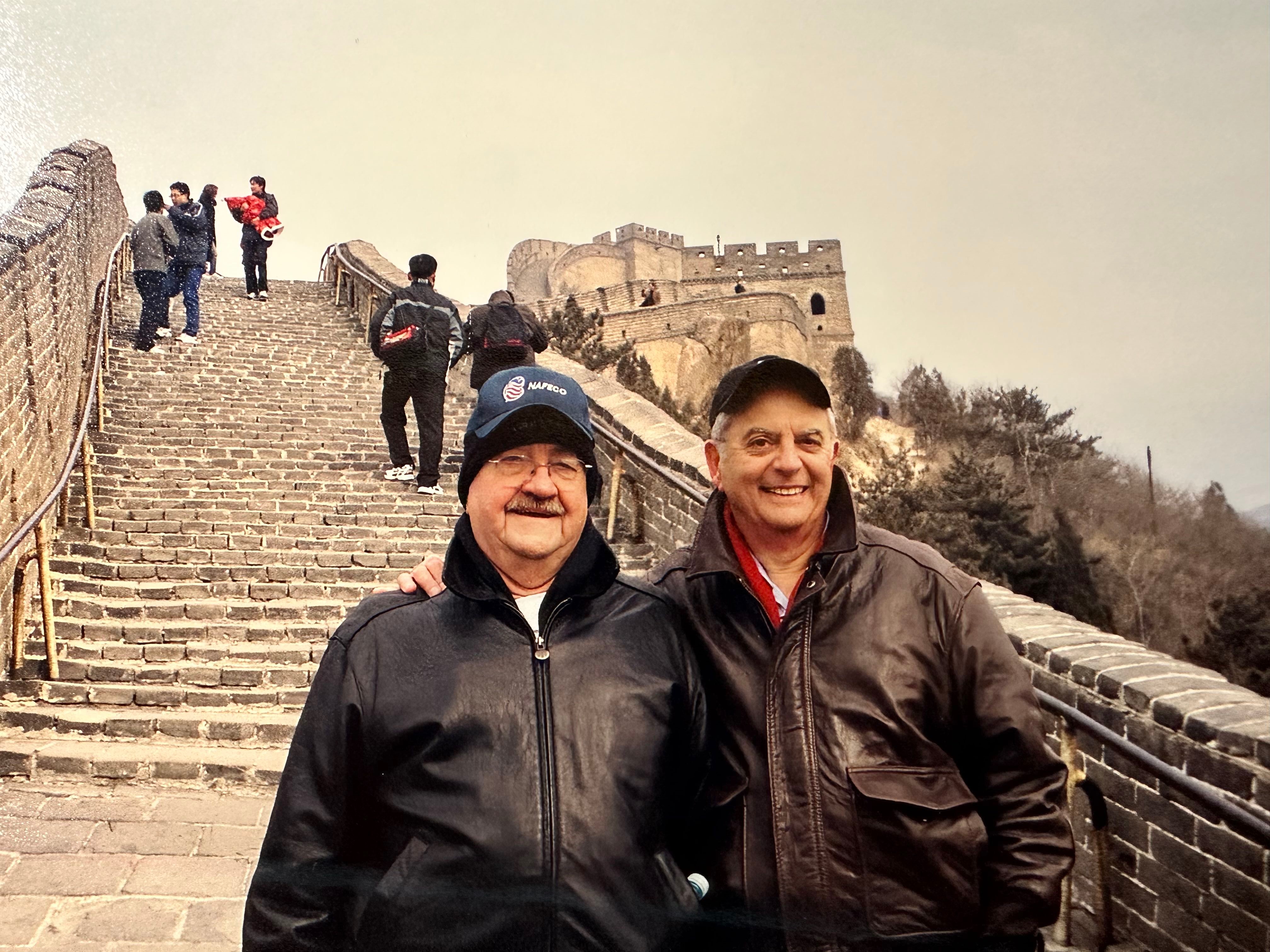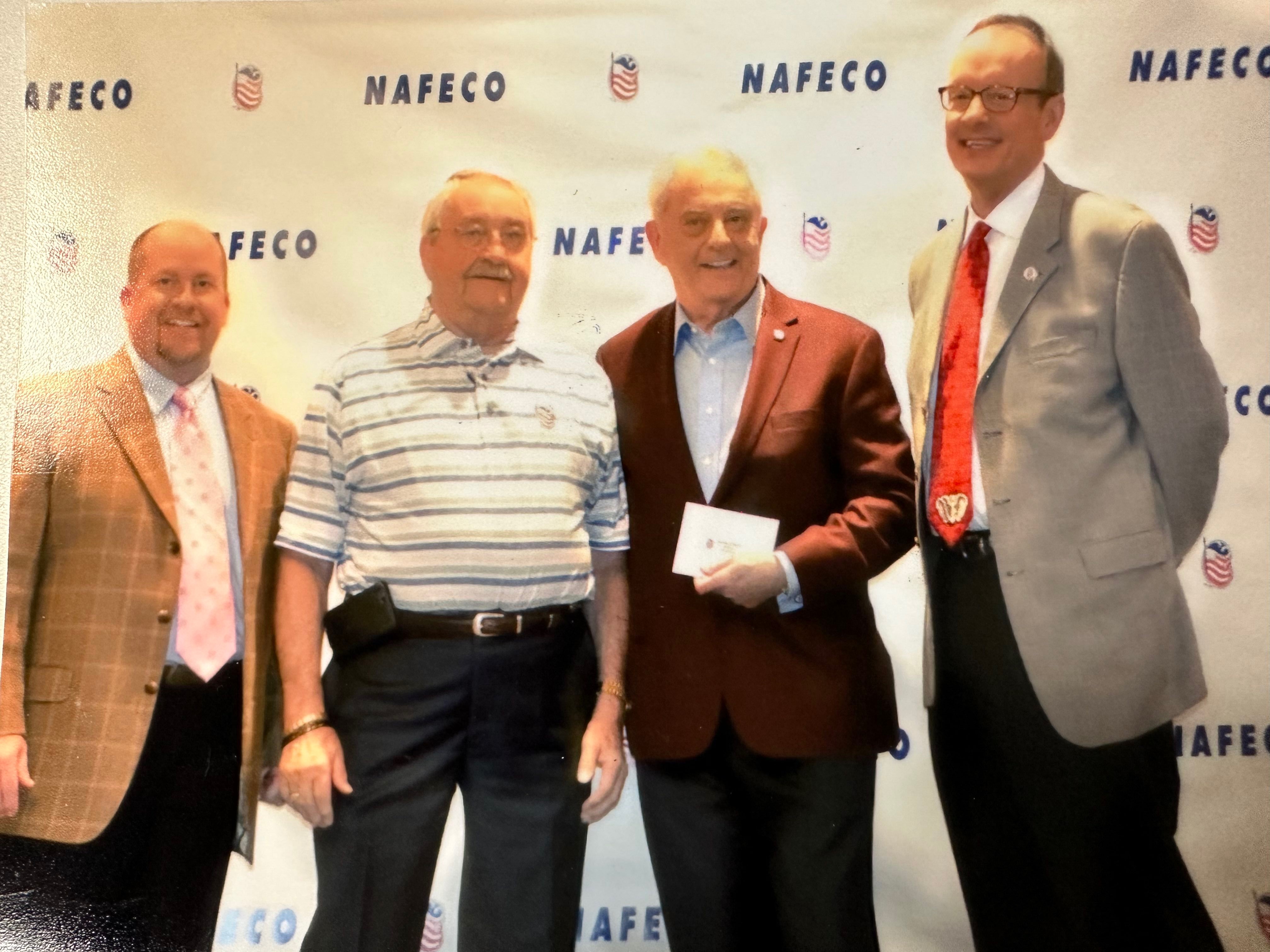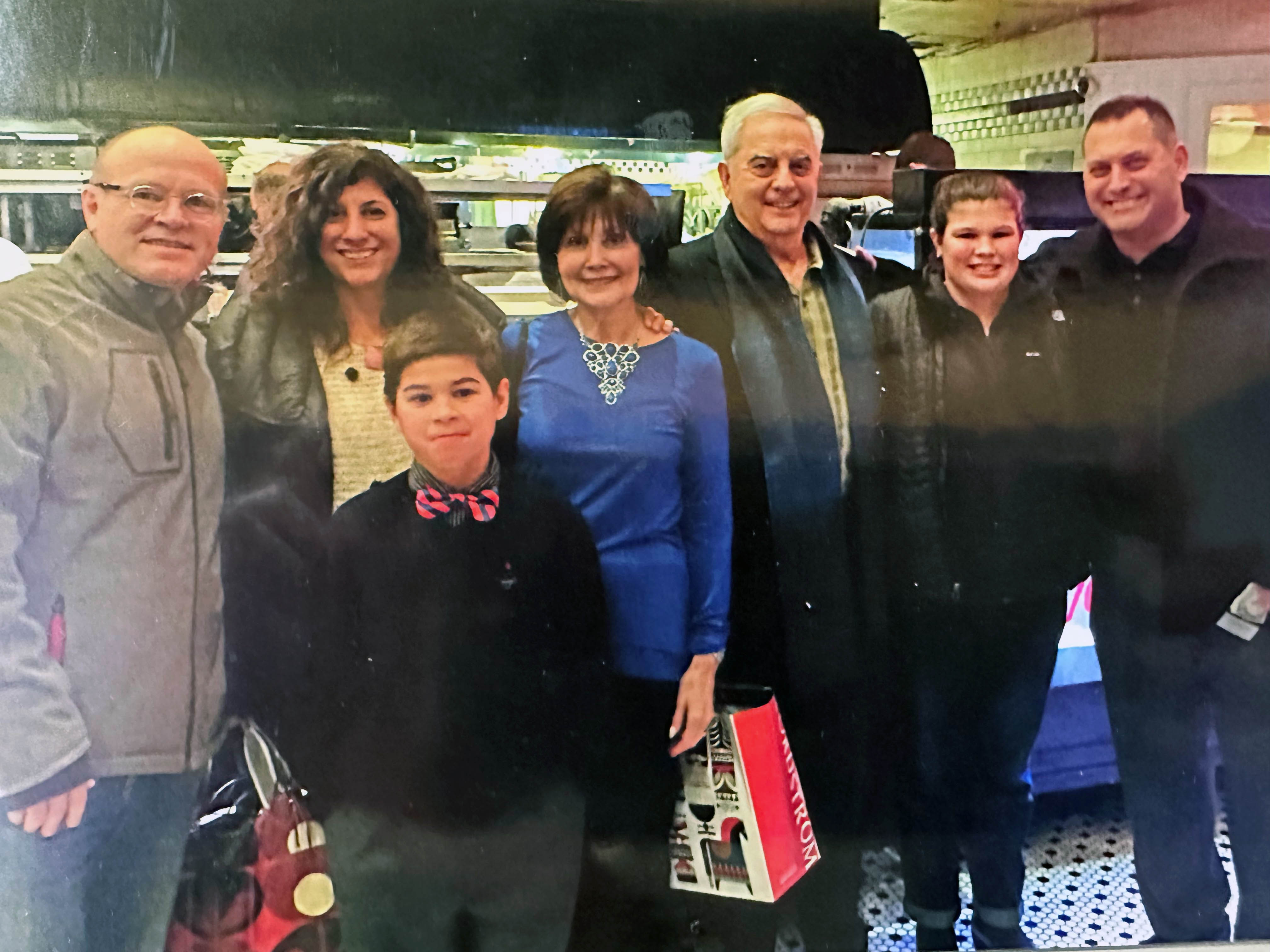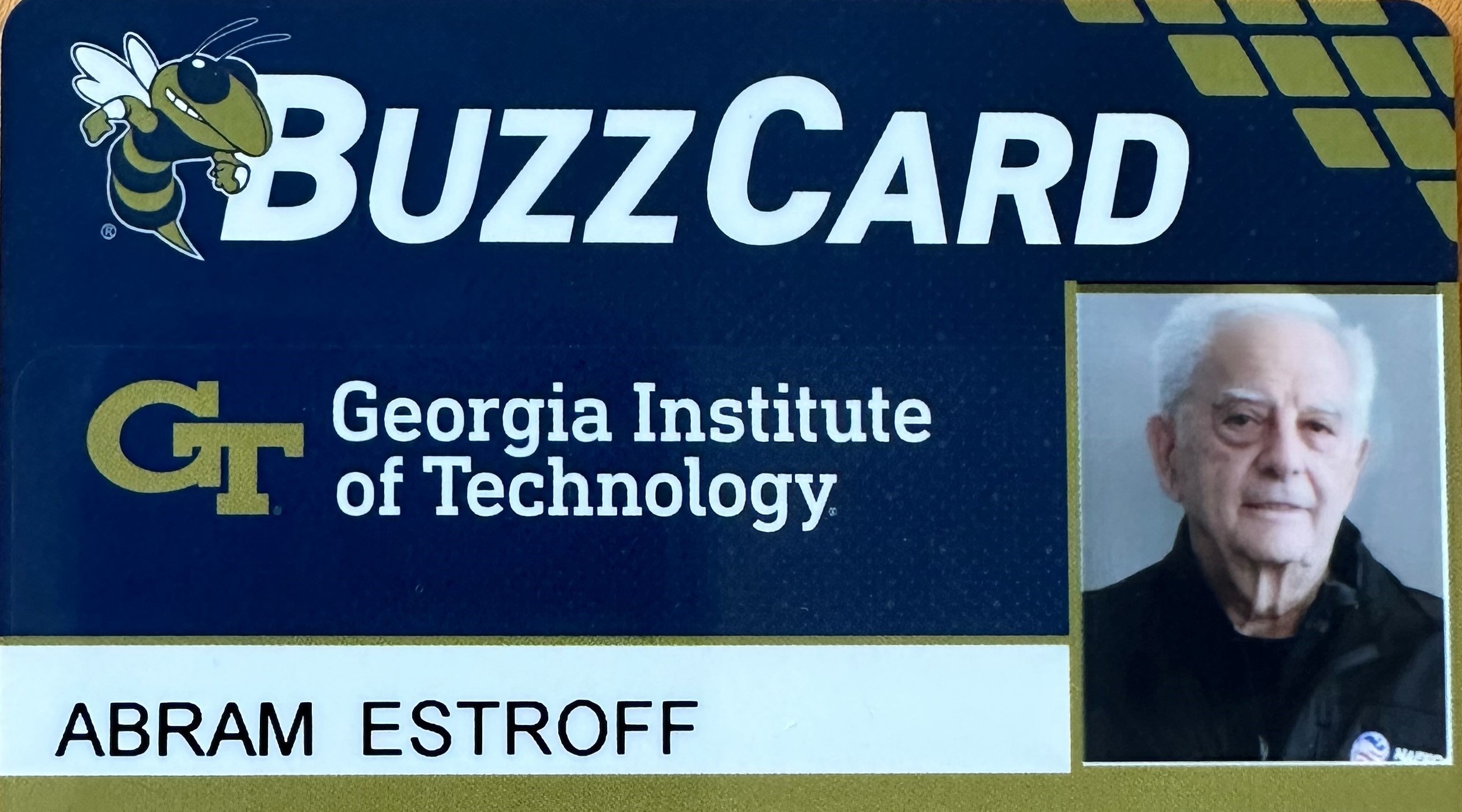At 16 years old, most high school students are studying for their driver's license, hanging out with friends, and participating in extracurricular activities. Allan Estroff, however, had other things on his mind.
Coming from the small town of Sylvania, Georgia, he had one goal: learn more about the garment industry. He thought Georgia Tech's School of Textile Engineering, now the School of Materials Science and Engineering, would offer the courses he needed to gain more knowledge about the industry. It was fall 1957. At that time, apparel and textile manufacturing were major industries in Georgia, and many men wanting to establish a career in manufacturing turned to Georgia Tech for their education.
During high school, Allan spent his summers working in his father's garment factory, Sylvania Garment Company. It was a contract sewing company for U.S. manufacturers and the first industry in Screven County. He was eager to help the company become more efficient and profitable.
"I came to Tech because I wanted to return to the factory and be a time and process engineer. I should have gone into industrial engineering, but I chose textile engineering. After being there for two years, I realized I didn't want to learn how to make fabric. I wanted to be an efficiency guy," he recalled.
So, Allan returned home.
Sixty-seven years later, he's returned to Tech. At 83, he's the oldest student at the Scheller College of Business and Georgia Tech. It's common to see him around Scheller wearing jeans with a backpack thrown over his shoulder when attending Tuesday and Thursday classes. That is when he's not answering calls, sending text messages, or working in his home office as a general sales manager with NAFECO, the North America Fire Equipment Company, Inc.; a comprehensive distributor of fire, law enforcement, EMS, and public safety apparel and equipment.
"I don't know how much time I have left, and this is one of those things I wanted to do – to finish my degree at Tech. My concentration is supply chain management because I've worked with it all my life," he said. "I want to finish what I started."
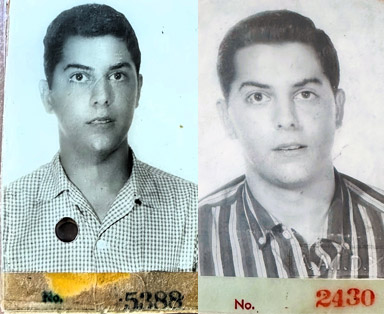
As a second-generation American, Allan comes from hard-working individuals determined to succeed in their new home. Both of his grandparents left Eastern Europe in the early 20th century. His grandfather settled in Savannah and started out as a peddler selling goods from a wagon. Allan's parents settled in Soperton, where his grandfather and father had started a hardware store to serve the farming community before opening the garment factory in Sylvania.
After 10 years in contract manufacturing, Allan's father sold the company to the White Stag Manufacturing Company in Portland, Oregon, which went from making skiing apparel in the 1920s to casual clothing in the 50s. On one of his regular visits to the Sylvania plant, the vice president of White Stag suggested to Allan's father that his son should consider attending the Fashion Institute of Technology (FIT) in New York City.
Fashion Institute of Technology and Hotel Chelsea
Since he'd left Tech without the manufacturing training he'd hoped for, Allan decided to give FIT a try and discovered it gave him the knowledge he needed.
"They had a production management department specifically for the apparel industry. We learned sewing machines, patterns, time and motion studies, and everything there was to know about apparel," Allan recounted.
Since there were no dorms at FIT, Allan lived in the famous Hotel Chelsea from 1960 to 1961 with roommates from Puerto Rico, California, and Hawaii. The hotel has a colorful past, hosting musicians like Bob Dylan, Alice Cooper, Janis Joplin, and Jimi Hendrix, and artists like Jackson Pollack, Robert Mapplethorpe, Diego Rivera, and Frida Kahlo. While Allan was there, the playwright and ex-husband of Marilyn Monroe, Arthur Miller, was one of the hotel's residents.
After graduating from FIT, White Stag offered him a job in Amsterdam, New York, as an assistant plant manager and engineer for time and motion study. At that time, sewers were paid by the number of pieces they could make at a given time, and Allan used a stopwatch to calculate their rates. He loved the job, but his time in New York was brief.
"After a relatively short stay, the company transferred me to their factory in San Francisco in the same position, only this facility manufactured ski jackets in the summer and sportswear in the winter," he said.
This was 1962, and he was making $4,000 a year.
San Francisco and the War
It was a time of growing apprehension and upheaval in the U.S. The Vietnam War was ramping up, and Allan didn't want to be drafted, so he took a leave of absence from the company and enlisted in the Army.
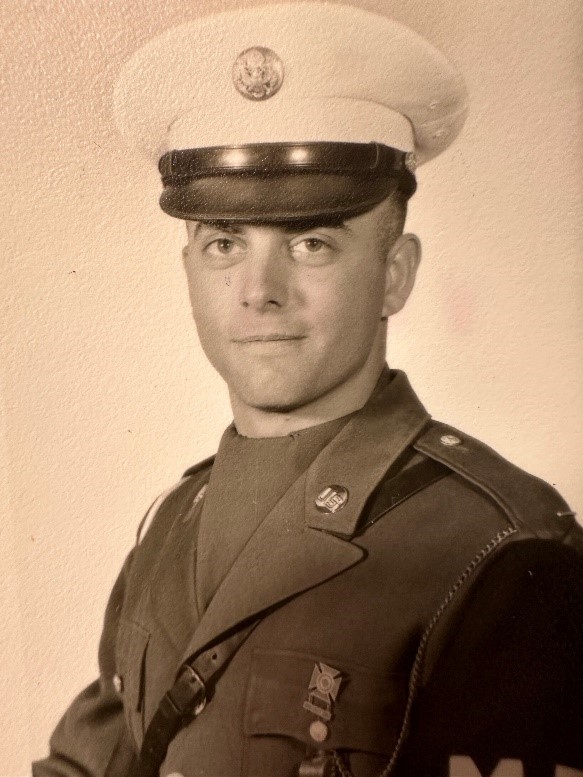 That six months turned into six years, and while he was never called up, he was on alert several times. He spent six months of active duty and five and a half years in the active reserves as a Military Police Officer (MP), having had the good luck of being transferred back to the East Coast to Fort Eisenhower, formerly Fort Gordon. During his time in the reserves, Allan continued working in the apparel industry.
That six months turned into six years, and while he was never called up, he was on alert several times. He spent six months of active duty and five and a half years in the active reserves as a Military Police Officer (MP), having had the good luck of being transferred back to the East Coast to Fort Eisenhower, formerly Fort Gordon. During his time in the reserves, Allan continued working in the apparel industry.
He completed his service duty in 1969. But staying in one place wasn't in his future. Allan would offer his talents to a long line of distinguished manufacturers over his long career.
Family Life Begins
From 1964 to 1976, Allan worked for White Stag in Portland, Oregon and Murfreesboro, Tennessee (where he became plant manager at the age of 23) and HEAD Ski Company, Inc. HEAD offered him a job overseeing the skiwear department, but it meant moving to Baltimore, Maryland.
Before starting his new job, Allan planned a trip to Atlanta. His mother suggested he call Linda Sims when he was in town. She was a young single woman whose cousin knew his family.
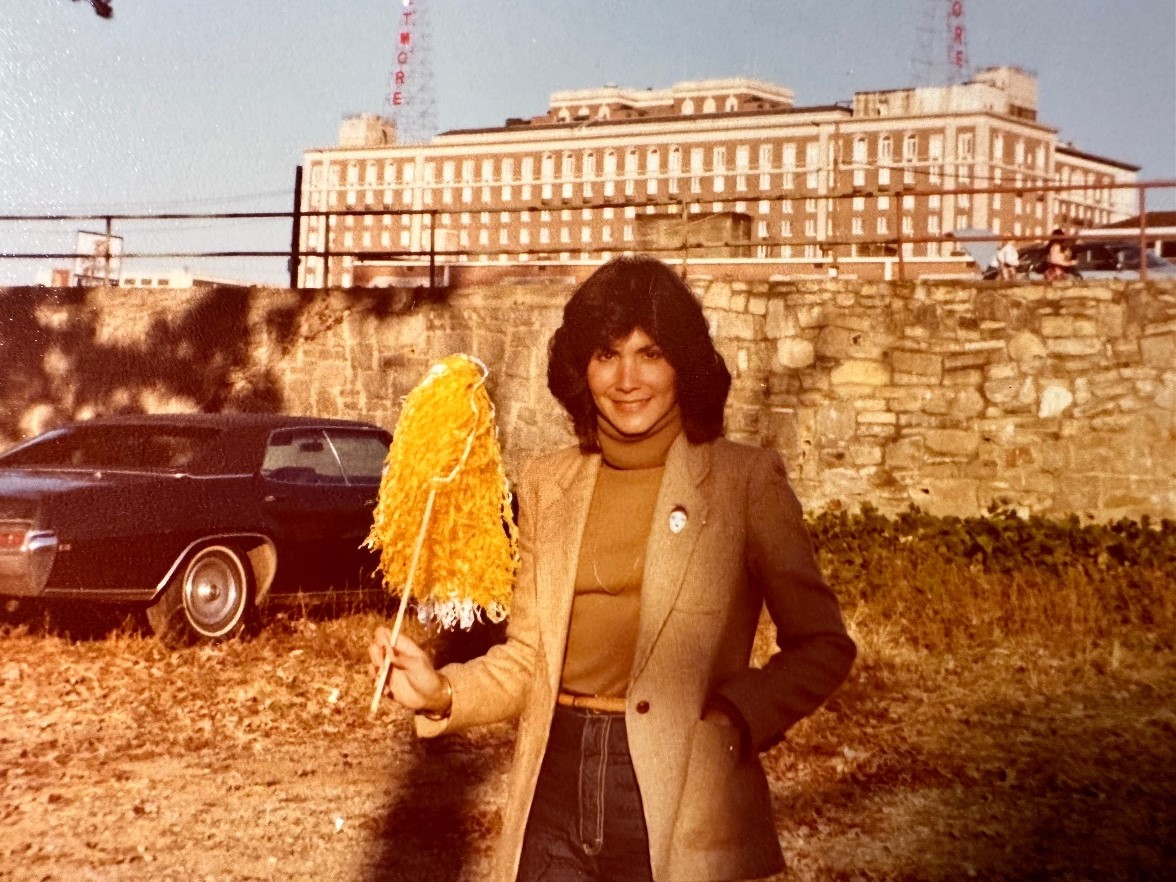
On August 15, 1964, he met Linda. Two weeks later, she invited him to a wedding. On his return to Atlanta two weeks after the wedding, Allan asked her to marry him. They've been together for 57 years and have two children, Steven and Amy, and two grandchildren.
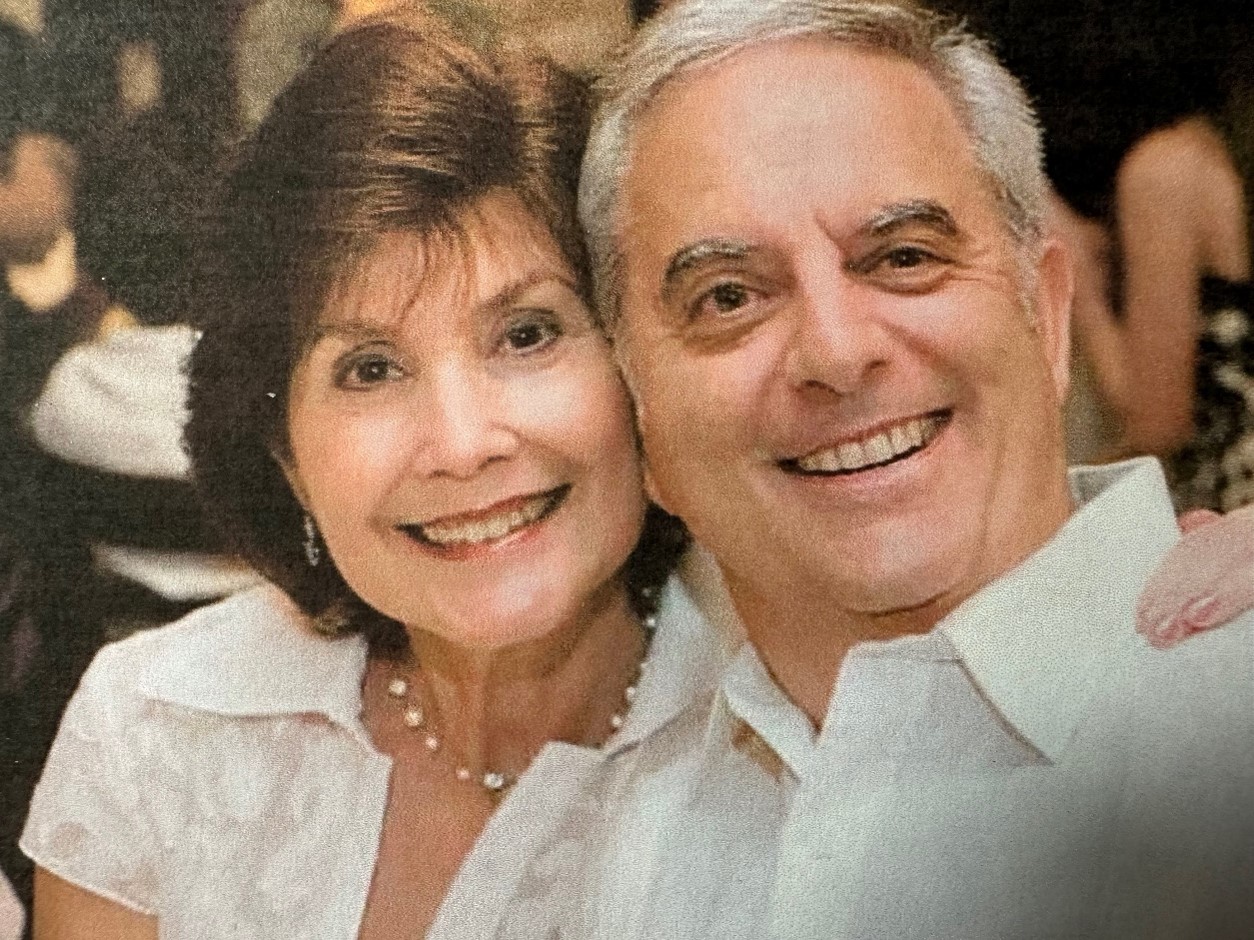
After working for HEAD Ski for four years, Allan worked for Bressler Uniforms for several years before he and a partner started their own company at 651 10th Street, around the corner from Georgia Tech. Times were changing and in the 70s Allan’s company switched from manufacturing uniforms to producing T-shirts, baseball and polo shirts, and accessories for the screen-printing industry.
"After five years in business, we learned a very important lesson. 'Don't put your eggs in one basket.' We had one account in California, producing T-shirts that accounted for half of our revenue. Then the phone call came, and the demand for our T-shirts stopped. The company existed from 1976 to 1981, when we had to close the doors," he said wistfully.
It's a cautionary tale told by many entrepreneurs.
International Travel and a Fateful Earthquake
"After I closed my plant, I was approached by the management of Bleyle, a maker of women's sportswear, and was offered the position of director of contract manufacturing,” Allan recounted.
Allan credits Dr. Paul Eaton, a retired professor from Georgia Tech who taught in the industrial engineering school, for introducing him to Bleyle. Incidentally, his wife, Anne Marie Eaton, who lived to be 102, was once deemed Tech's oldest living alumna.
"At Bleyle, I was responsible for all manufacturing offshore and began visiting Japan, Hong Kong, Taiwan, Korea, England, France, Germany, Mexico, and South America," he described.
The position required traveling to those countries four times a year. For the next 10 years, Allan made 40 trips to Asia. In the 90s, it was traditional for Western executives to work through a sourcing agent. They served as third-party entities and specialized in locating manufacturers in their respective countries on one's behalf. Throughout his years of travel, Allan established valuable friendships with many sourcing agents and manufacturing employees.
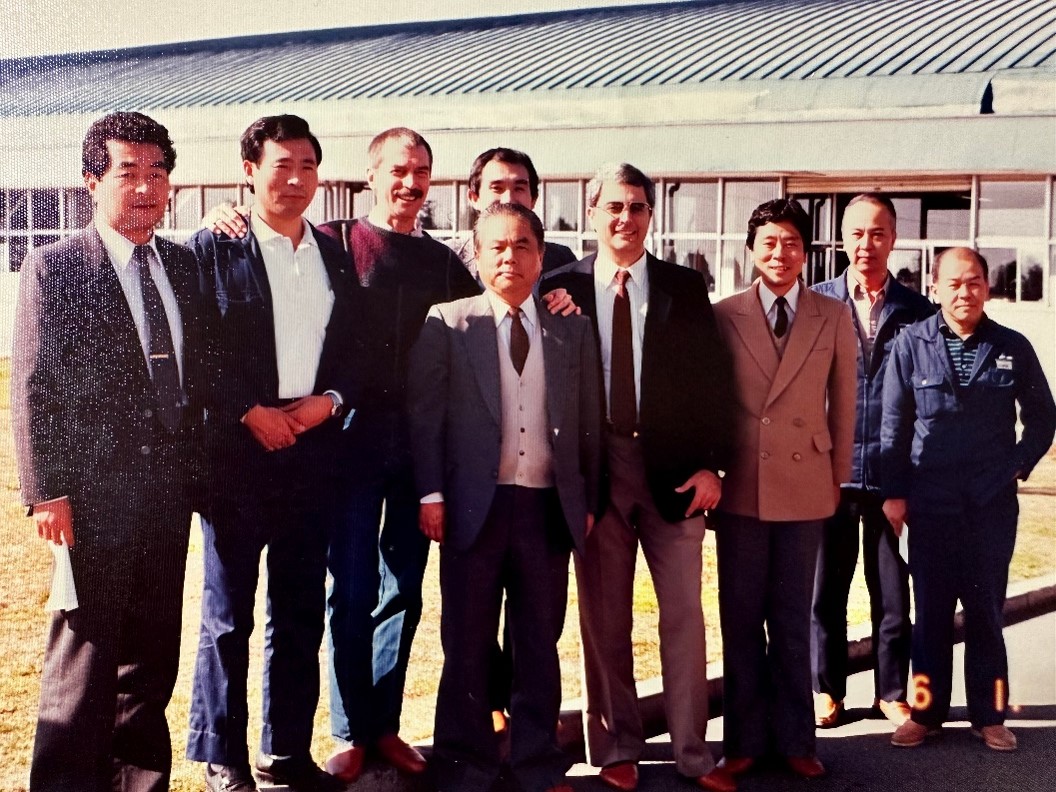
He would buy fabric from Japan, send it to Hong Kong, visit the factory he wanted to do business with, determine the price they would charge, and create samples to approve. However, Bleyle faced significant challenges in the latter part of Allan's time at the company, and after being there for 10 years, he left when the company was sold.
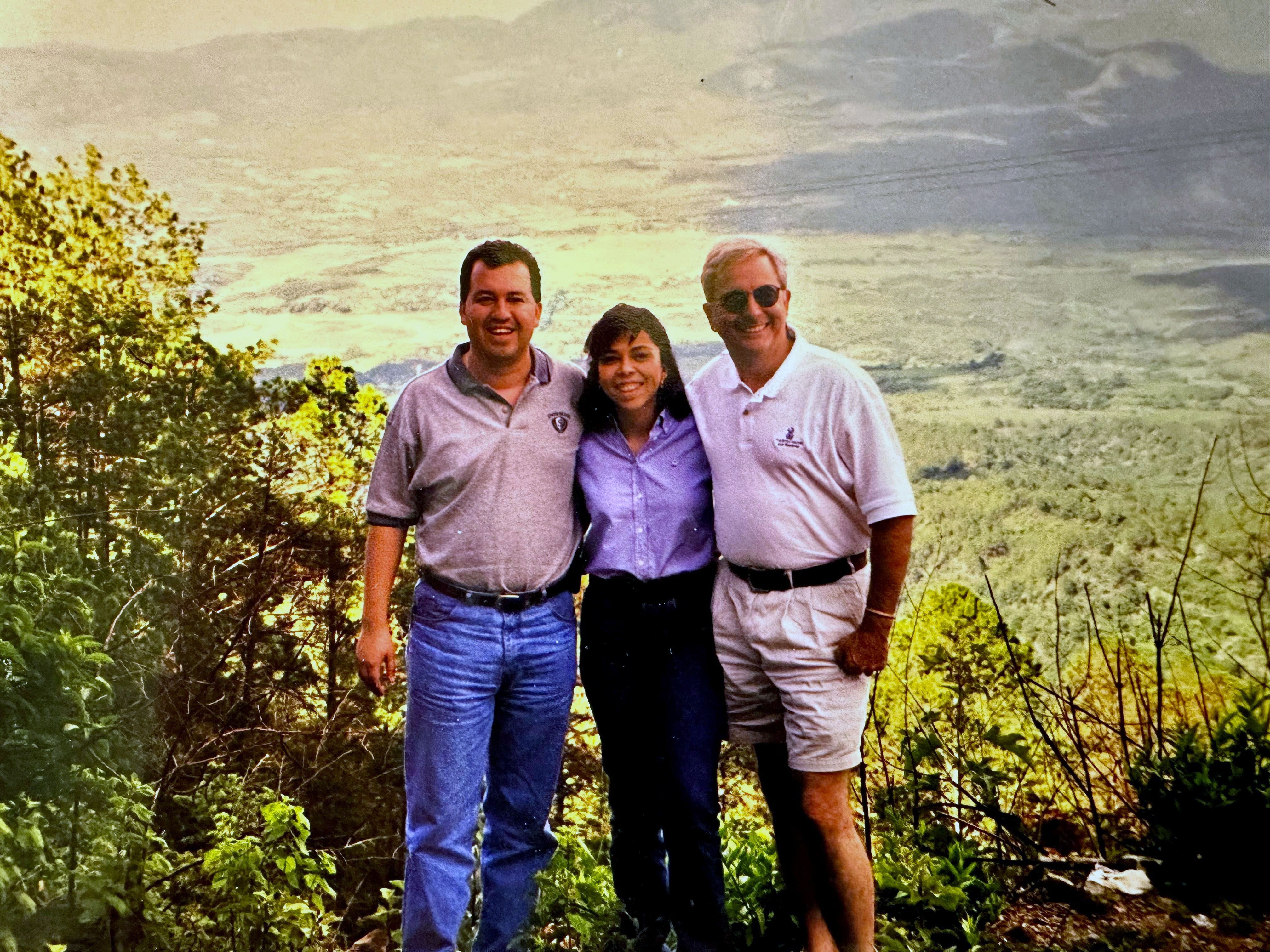
In 1992, he began working for a friend in El Salvador as a process engineer in a large sewing factory. At that time, the Salvadoran government and the Farabundo Martí National Liberation Front (FMLN) had just signed the Chapultepec Peace Accords, signaling the end of a 12-year battle between militant groups and the El Salvadorian government. Like his service years, Allan barely dodged the conflict.
He spent four years in Central America. When a 7.6 earthquake hit El Salvador while he was there, he called his boss and told him he wanted to come home. When he returned, he briefly worked for Ottenheimer Uniforms in Central America and Norfolk, Virginia, and Superior Uniforms in Atlanta. After a short stint as a division manager with Superior, he started his work at NAFECO. He's been there for 22 years.
The Power of Resilience and Adaptability
"I've been working for 62 years, and the last 22 years hasn't been a job. It's been a lot of fun. I've done things for my company that they would have never gotten done had it not been for my background. I don't believe in luck, but I do believe that the harder I worked, the luckier I became," he said confidently.
What's now a common theme in Allan's long career is how adaptable he is to change and how quickly he's been able to pivot into different roles with different companies while remaining true to his passion. Allan's story teaches that change is a given, and one's reputation and ability to network can lead to amazing opportunities.
"After a successful business career, he's returning to finish what he once started. He has embraced every challenge with the commitment and positive attitude that characterizes our Scheller students. I am confident Allan will enrich the classroom experience with stories about his life and career," said Beatriz Rodriguez, assistant dean of Scheller's undergraduate program.
In his first semester, Allan has already been asked by one of his professors to give a presentation on his career. His fellow classmates are in for something special - he has a great story to tell.
